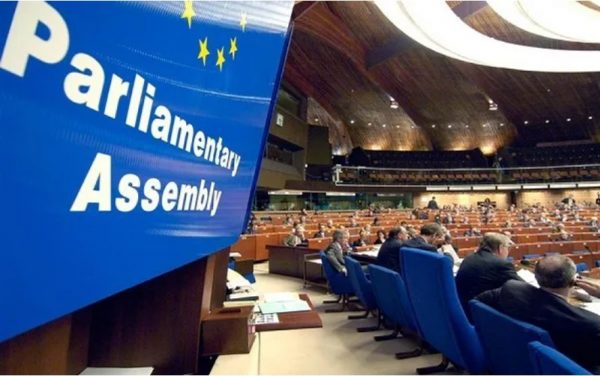The Parliamentary Assembly of the Council of Europe (PACE) adopted at its last winter session, the annual report taking stock of its monitoring activities in 2020. In the section of the report dedicated to North Macedonia, rapporteur Michael Aastrup Jensen stressed that North Macedonia’s EU integration process was halted because Bulgaria is blocking the adoption of a negotiating framework for North Macedonia and objecting to the use of the Macedonian language in the negotiating framework, MIA reports from Strasbourg.
In October 2019, the Assembly adopted Resolution 2304 (2019) on the “Post-monitoring dialogue with North Macedonia”. In the meantime, Jensen noted, “the European integration process was marked by the decision of the Council of the European Union to open membership negotiations with North Macedonia [and Albania] on 26 March 2020 – a decision the country had been waiting for since 2009.”
“The accession negotiations however have not started yet, as Bulgaria is blocking the decision of the European Union Council of Minister to adopt a negotiating framework for North Macedonia: Bulgaria is objecting to the use of the Macedonian language in the negotiating framework and has differing views on their shared history, despite the signing of the Treaty on Good Neighbourly Relations with North Macedonia in 2017,” he added.
According to PACE “overall democratic institutions have been functioning well.” The parliament was able to ensure constructive political dialogue and to fulfil its legislative functions. The reforms undertaken in 2019 continued, including in the judiciary: the much awaited revised law on the Public Prosecutor’s Office was adopted and entered into force in June 2020.
While corruption remains prevalent, GRECO noted in October 2020 the “noticeable efforts made by the authorities to revise the legislative frameworks” but consistent practical application of the new rules remains to be seen, such as for the revised Code of Ethics for MPs.
Progress was noted to prevent corruption of lay judges; however the Minister of Justice was not removed from the Judicial Council. GRECO welcomed the substantially strengthened regulation of the terms for the selection, appointment and dismissal of the members of the State Commission for Prevention of Corruption (SCPC) which remained pro-active in preventing corruption, opening cases, including those involving high-level officials from across the political spectrum. and addressing allegations of nepotism, cronyism and political influence in the process of recruitment of public sector employees.
According to PACE, the overall situation of media remains unchanged, including previous issues identified, such as financial sustainability of independent media, self-regulation, transparency of media advertising by State institutions, political parties and public enterprises, and the public service broadcaster’s independence.
Moreover, PACE reiterated that the latest election process in North Macedonia was well-organized.
In the adopted resolution, the Parliamentary Assembly of the Council of Europe calls on North Macedonia to: pursue its efforts to strengthen the independence of the judiciary and the fight against corruption, in line with the recommendations of the Group of States against Corruption (GRECO); to launch the reforms needed to improve the situation of the media with due consultation of all stakeholders; to further implement Resolution 2304 (2019) on the “Post-monitoring dialogue with North Macedonia”, notably to increase the sustainability and functioning of democratic institutions, consolidate the electoral framework and pursue inclusive policies aiming at securing the rights of minorities.
These issues will be further explored by the co-rapporteur Ms Lise Christoffersen (Norway, SOC) and Mr Zsolt Csenger-Zalàn (Hungary, EPP/CD), appointed in June 2020 as co-rapporteur.















